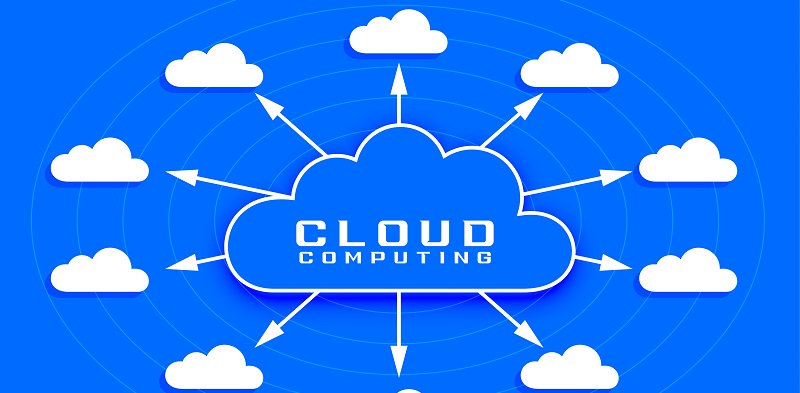The cloud space has revolutionized the way businesses access scalable resources and managed services. With an emphasis on simplifying interactions and reducing the cognitive load for teams, organizations are benefitting from increased efficiency and productivity. In this article, we will explore the evolving trends in the cloud and DevOps domains, highlighting the role of Artificial Intelligence (AI) and Large Language Models (LLMs) in addressing cognitive overload, the adoption of a platform-as-a-service mindset in platform engineering, the widespread adoption of OpenTelemetry for observability, the focus on sustainability and green computing, the development of FinOps for cost management, the rising security concerns, the significance of Wasm in achieving the ‘write once, run anywhere’ vision, and the excitement surrounding open-source adoption and AI-infused services.
Role of Artificial Intelligence and Large Language Models (LLMs) in the Cloud and DevOps domains
As businesses strive to streamline their operations, AI and ML have emerged as valuable tools in managing the complexities of cloud and DevOps. These technologies address cognitive overload by automating tasks such as incident management, ticketing systems, and even code generation. By leveraging AI, teams can offload repetitive and mundane tasks, freeing up their time to focus on more strategic initiatives. This integration of AI in the cloud and DevOps domains holds immense potential for improving productivity and enhancing efficiency.
Evolving trends in platform engineering
Platform engineering is undergoing a transformative shift towards simplification and value delivery with the adoption of a platform-as-a-service mindset. By abstracting away infrastructure complexities and providing self-service capabilities, platform engineers can empower development teams to focus on building applications and delivering value to customers. This shift allows organizations to accelerate their time to market, enabling them to stay competitive in an ever-changing landscape.
The growing adoption of OpenTelemetry for observability
Observability has become crucial in maintaining application performance and identifying bottlenecks. OpenTelemetry, an open-source project, has rapidly gained traction as the industry standard for collecting metrics and event-based observability data. With its wide adoption, organizations can seamlessly capture and analyze data across clouds, platforms, and services, leading to improved troubleshooting, performance optimization, and better decision-making.
A focus on sustainability and green computing
In an era marked by growing environmental concerns, architectural choices are increasingly influenced by the need for sustainability and minimizing carbon footprints. Organizations are striving to build energy-efficient infrastructures and employ practices that promote sustainability. With the adoption of eco-friendly technologies and approaches, businesses can significantly reduce their environmental impact while also benefiting from cost savings and improved resource utilization.
The Evolution of FinOps in Cloud Cost Management
Managing cloud costs effectively has always been a challenge. However, the emergence of FinOps, the practice of optimizing cloud spending, has gained significant traction. FinOps brings together finance, operations, and engineering teams to collaboratively manage costs, monitor spending patterns, and identify areas for optimization. As businesses enter the early majority of FinOps adoption, they can enhance financial transparency, optimize resource allocation, and ensure cost-effective cloud operations.
Addressing security concerns in cloud-based applications and DevOps practices
As cloud adoption continues to surge, architects and developers face an increasingly long list of security concerns. Ensuring the integrity, confidentiality, and availability of data becomes paramount. Organizations must implement robust security measures, such as access controls, encryption, and continuous monitoring, to safeguard their cloud-based applications and DevOps practices from potential threats. By prioritizing security from the start, businesses can mitigate risks and build resilient systems.
The Significance of Wasm in Achieving the ‘Write Once, Run Anywhere’ Vision
WebAssembly (Wasm) has emerged as a significant step towards achieving the long-sought-after “write once, run anywhere” vision in the cloud. Wasm allows developers to write code in any programming language, which can then be compiled into a binary format that can run across different platforms and devices. By enabling seamless execution of code across environments, Wasm promotes interoperability, reduces complexity, and enhances developer productivity.
Exciting Points: Open-Source Adoption and AI-Infused Services
The open-source movement continues to gain momentum in the cloud and DevOps domains. Initiatives like OpenTelemetry and CloudEvents facilitate standardization, enabling interoperability and ease of integration across various tools and platforms. Moreover, AI-infused services, such as Copilots and ChatGPT, bring new possibilities in automating tasks, generating code, and enhancing collaboration. These advances present exciting opportunities for innovation, efficiency, and knowledge sharing within the industry.
The landscape of the cloud and DevOps domains is evolving at a rapid pace, driven by the need for simplified interactions and reduced cognitive load. Artificial Intelligence and Large Language Models are rapidly transforming the way organizations handle complex tasks, while the adoption of a platform-as-a-service mindset in platform engineering is empowering teams to deliver value more efficiently. OpenTelemetry has become the go-to solution for observability, sustainability, and green computing, driving architectural choices. FinOps is also gaining wider adoption in effectively managing cloud costs. As security concerns continue to rise, organizations must remain vigilant in fortifying their cloud-based applications and DevOps practices. Wasm emerges as a significant enabler of seamless code execution, while open-source adoption and AI-infused services bring excitement and promise. Overall, the ongoing developments in the cloud and DevOps space offer abundant learning opportunities and a promising future for innovation and collaboration.

